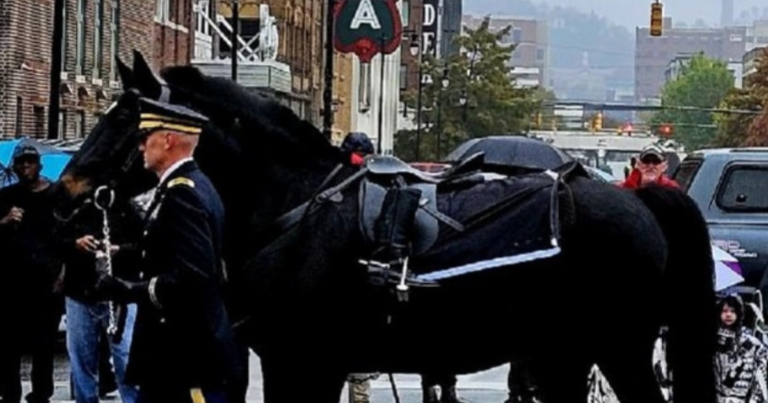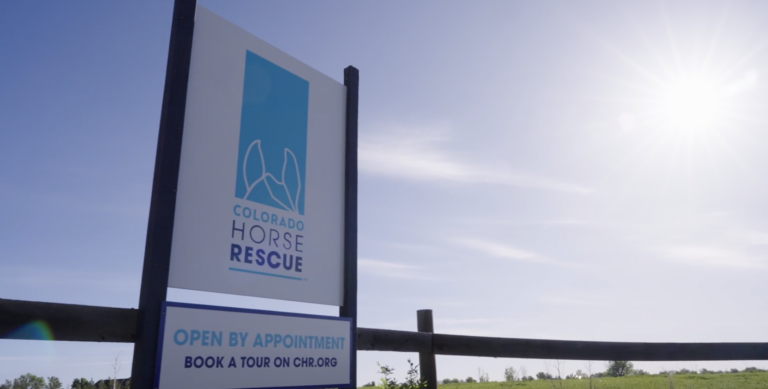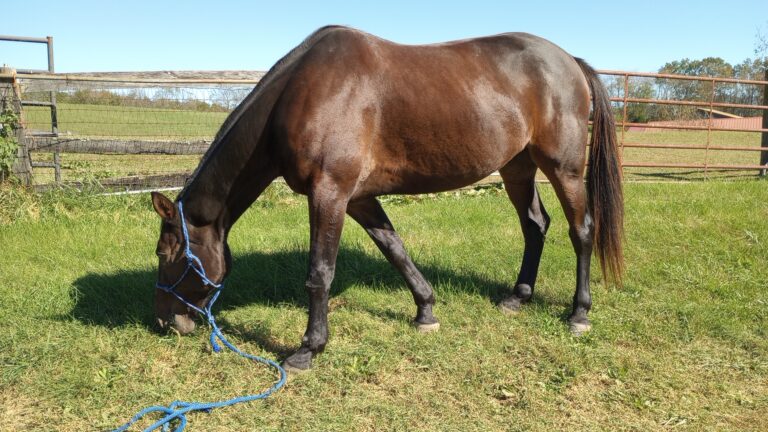Subtle signs may indicate more serious issues.
By Boehringer Ingelheim
Have you ever spent time with your horse and thought, “Something just isn’t right. Why is my horse so irritated? What’s got the horse in such a bad mood?” It could be little things like pinning their ears while being groomed or kicking out when the girth is tightened or refusing a jump they normally take without issue. When these types of behaviors start to establish a pattern, they may be a sign that there is a bigger issue.
Your horse’s “bad behavior” could be subtle signs of equine stomach ulcers, and it may warrant a call to your veterinarian.
Inappetence, signs of colic and poor body condition are often associated with gastric ulcers, however, changes in behavior may also be suggestive signs.
“The presence of equine stomach ulcers isn’t always obvious,” says Hoyt Cheramie, DVM, MS, DACVS, Senior Equine Professional Service Veterinarian, Boehringer Ingelheim. “Sometimes abnormal behavior doesn’t signify a larger attitude issue or a need for additional training – it may just be the horse’s way of showing they don’t feel well.”
All horses are at risk for stomach ulcers. Two out of three competitive horses have them. Anywhere there is stress, stomach ulcers may be a risk. Stress comes from many sources, such as frequent trailering, intense training and loud, unfamiliar noises at the showgrounds.
And it’s not just those that show. Non-competitive horses are also susceptible as 30 percent of pleasure horses have ulcers.
Ulcers form when excess acid builds within a horse’s stomach. Horses naturally produce acid – up to 16 gallons per day – that helps maintain regular gastric function. But stress, feed routines and other management practices can cause acid to rise above normal levels and damage unprotected stomach lining, resulting in ulcers.
Unfortunately, ulcers can’t be seen with the naked eye so there’s no way to reliably make the call yourself. The only way to diagnose them definitively is for a veterinarian to perform a gastroscopy.
If ulcers are detected during a scoping, treatment with GASTROGARD® (omeprazole), by Merial, may be recommended. GASTROGARD is the only proven and FDA-approved ulcer treatment product. It contains specially formulated omeprazole that suppresses acid production to a level that allows the ulcers to heal.
In addition to treating with medication, Cheramie suggests the following to help manage ulcers:
· Providing continuous access to roughage through grazing or hay-restrictive feeders or nets
· Dividing grain-based feed into multiple small daily meals
· Working with your veterinarian to make other necessary adjustments
“Along with good management practices, you can also work to prevent ulcers with
ULCERGARD® (omeprazole), by Merial, especially during times of stress,” Cheramie says. “Proven to help protect your horse’s stomach lining, its patented formulation allows the omeprazole reach the small intestine for absorption without being broken down by stomach acid.”
Don’t make excuses for your horse’s irregular attitude when stomach ulcers could be to blame. Instead, talk to your veterinarian about scheduling a scoping. If ulcers are indeed the culprit, he or she can recommend steps to help your horse feel, perform and behave their best.
IMPORTANT SAFETY INFORMATION: The safety of GASTROGARD paste has not been determined in pregnant or lactating mares. For use in horses and foals 4 weeks of age and older. Keep this and all drugs out of the reach of children. In case of ingestion, contact a physician.
IMPORTANT SAFETY INFORMATION: ULCERGARD can be used in horses that weigh at least 600 pounds. Safety in pregnant mares has not been determined. Not for use in humans. Keep this and all medications out of the reach of children. In case of ingestion, contact a physician.
About Boehringer Ingelheim Animal Health Business Unit
Boehringer Ingelheim is the second largest animal health business in the world. The company is committed to creating animal wellbeing through its large portfolio of advanced, preventive healthcare products and services. With net sales of €3.9 billion and around 10,000 employees worldwide, Boehringer Ingelheim’s Animal Health business is present in more than 150 markets.
About Boehringer Ingelheim
Boehringer Ingelheim is one of the world’s top 20 pharmaceutical companies. Headquartered in Ingelheim, Germany, the company operates globally with approximately 50,000 employees. Since its founding in 1885, the company has remained family-owned and today creates value through innovation in three business areas including human pharmaceuticals, animal health and biopharmaceutical contract manufacturing. Boehringer Ingelheim is committed to improving lives and providing valuable services and support to patients and their families. In 2017, Boehringer Ingelheim achieved net sales of about $20.4 billion (18.1 billion euros). R&D expenditure corresponds to approximately $3.4 billion (three billion euros), or 17.0 percent of its net sales.
More information about Boehringer Ingelheim can be found on www.boehringer-ingelheim.com or in the company’s annual report at http://annualreport.boehringer-ingelheim.com.
®ULCERGARD and GASTROGARD are registered trademarks of Boehringer Ingelheim Animal Health USA Inc. ©2019 Boehringer Ingelheim Animal Health USA Inc., Duluth, GA. All rights reserved. EQU-0733-EGUS0818.
Mitchell RD. Prevalence of gastric ulcers in hunter/jumper and dressage horses evaluated for poor performance. Association for Equine Sports Medicine, September 2001.
Equine Gastric Ulcer Council. Recommendations for the diagnosis and treatment of Equine Gastric Ulcer Syndrome (EGUS). Equine Vet Educ. 1999;11:262-272.
Sykes BW, et al. ECEIM Consensus Statement – EGUS in Adult Horses. J Vet Intern Med 2015; 29: 1288-1299.
GASTROGARD product label.
ULCERGARD product label.








